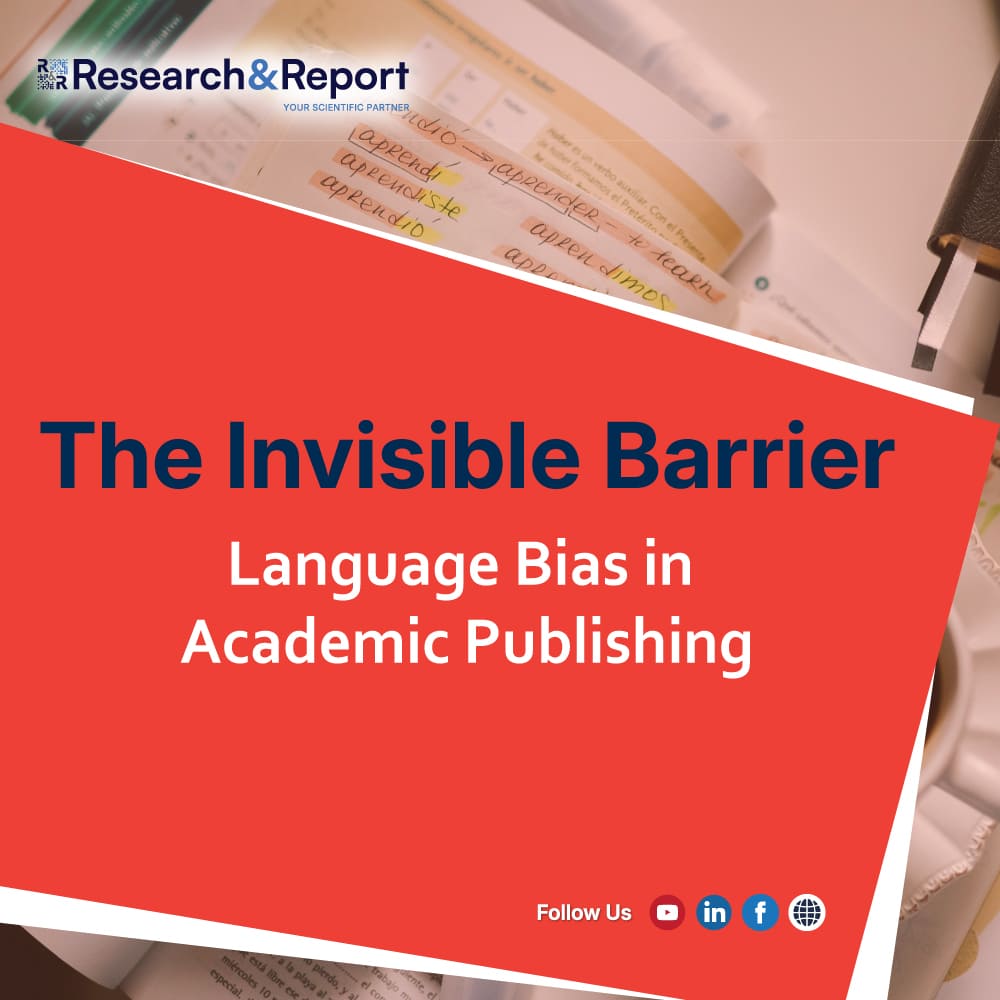In recent years, the global research community has made strides in promoting open science, equitable access, and inclusivity. But beneath these visible reforms lies an invisible yet powerful gatekeeper that continues to marginalize voices and distort knowledge flows: language bias in academic publishing.
At Research & Report, we routinely work with brilliant scholars — particularly from the Global South — whose work is overlooked or undervalued not because of methodological weakness or lack of innovation, but because their English doesn’t meet the unspoken expectations of the dominant publishing order.
This isn’t a minor flaw in the system — it’s a structural bias that perpetuates epistemic inequality.
What Is Language Bias in Publishing?
Language bias refers to the preferential treatment of scholarly work written in ‘standard academic English’, often spoken by native or near-native English speakers from the Global North. It manifests in how manuscripts are reviewed, evaluated, and even cited — with linguistic fluency often mistaken for intellectual quality.
In short: many reviewers and editors equate clarity of expression with credibility of argument — regardless of content quality.
Key Ways Language Bias Distorts Academic Publishing
1. Linguistic Style as a Proxy for Scholarly Rigor
Non-native English writers are often penalized for sentence structure, word choice, or unfamiliar academic tone — even when their methods and arguments are sound. This leads to higher rejection rates, harsher reviews, or demands for costly professional editing.
2. Epistemologies Get Lost in Translation
When scholars are forced to write in a second or third language, the cultural and theoretical nuance of their argument may be diluted or misunderstood. This is particularly harmful in social sciences, where contextual embeddedness matters.
3. Gatekeeping Through Reviewer Bias
Reviewers — even unconsciously — may focus more on grammar and “readability” than conceptual substance. Manuscripts written in accented or regionally inflected English often face disproportionate scrutiny, even when content meets academic standards.
4. Cost Barriers for Language Editing
High-quality English editing services are expensive, and not all institutions or researchers can afford them. This creates a pay-to-pass filter where only well-funded scholars can overcome the linguistic hurdle.
5. Global South Marginalization
The dominance of English-language journals and expectations of “native-level” writing creates a systemic disadvantage for researchers from Latin America, Asia, Africa, and the Middle East — limiting their visibility, influence, and citation impact.
Why This Matters: Beyond Grammar to Global Equity
Language is not a neutral vehicle. It shapes how knowledge is constructed, validated, and disseminated. When language becomes a barrier, not just a medium, it:
- Limits epistemic diversity
- Suppresses local knowledge systems
- Reinforces academic colonialism
- Distorts global scholarly discourse
In effect, the dominance of English and the bias embedded in its enforcement creates a publishing system that is less global than it claims to be.
What Can Researchers and Journals Do?
For Researchers:
- Acknowledge the power of language in shaping research impact
- Seek mentors or peer reviewers who provide conceptual, not just grammatical feedback
- Use translation and editing tools critically — don’t let tools erase your theoretical voice
- Push back against stylistic comments that overlook substantive contributions
For Journals and Reviewers:
- Train reviewers on identifying and separating linguistic clarity from analytical quality
- Support multilingual submissions or abstracts
- Offer language editing support as part of submission pathways
- Reconsider the dominance of “native English” as an unspoken standard
Final Thought
Language bias is the silent filter that shapes who gets heard and who gets sidelined in global academia. It doesn’t appear in reviewer comments as “language bias” — but shows up as “not clearly written”, “difficult to follow”, or “needs professional editing”.
Until academic publishing recognizes and addresses this issue, it will continue to privilege fluency over substance, and accent over insight.
At Research & Report, we advocate for and support researchers in overcoming language barriers without losing their scholarly voice. Because research should be evaluated for what it says — not how perfectly it says it in English.
Need expert help refining your manuscript while preserving your theoretical voice?
Connect with Research & Report — where equity, clarity, and scholarly excellence come together.

